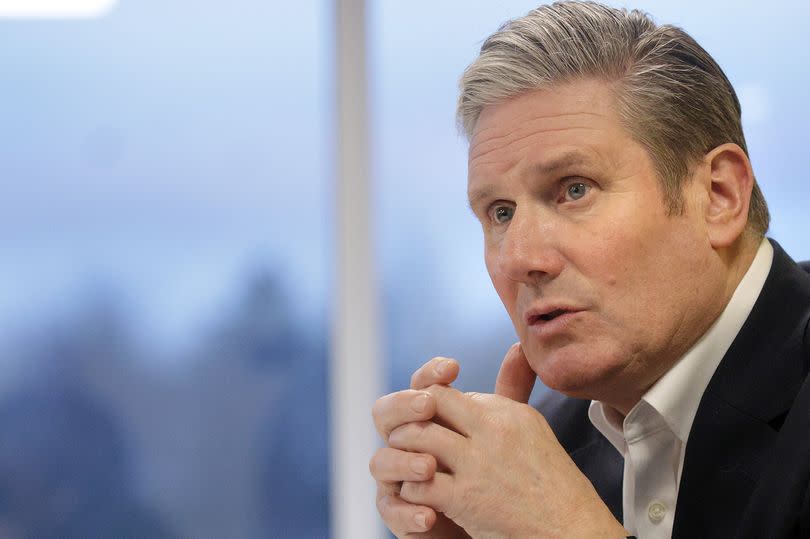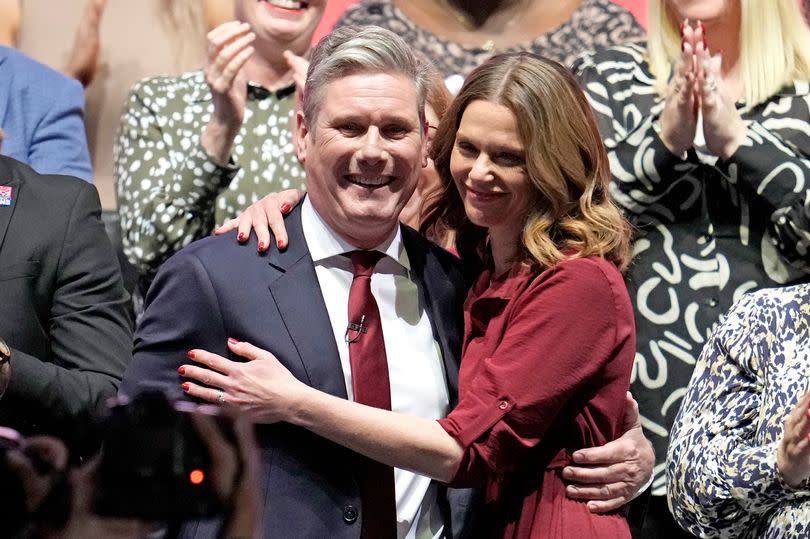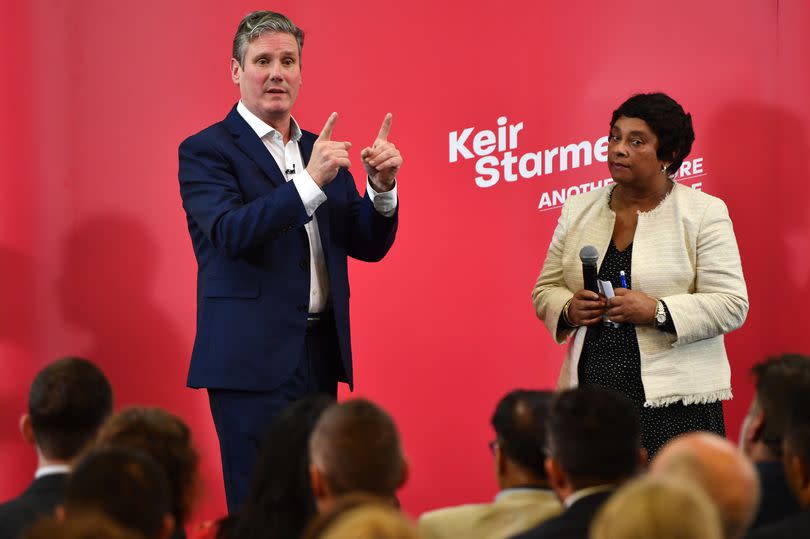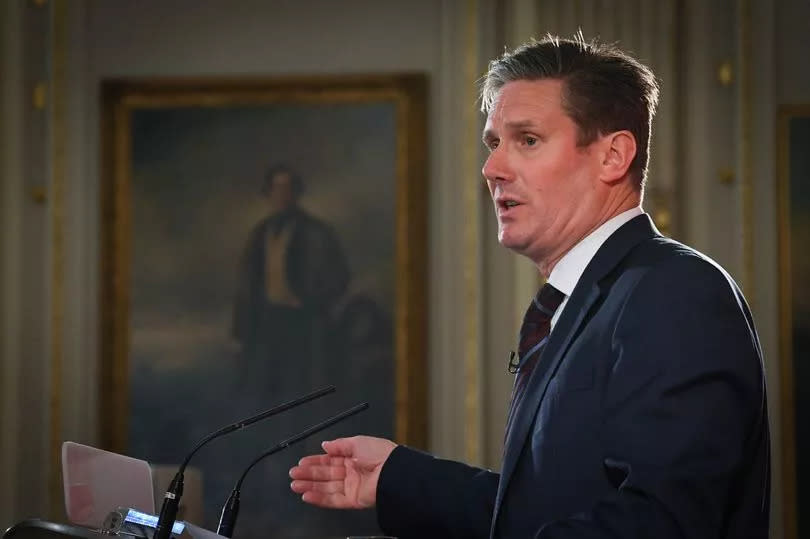Who is Keir Starmer? All you need to know about UK's new Prime Minister

Sir Keir Starmer has been given the keys to No 10 Downing Street after leading Labour to a landslide victory at the general election.
The London MP, who first entered Parliament less than a decade ago, has taken his party from its worst defeat since the 1930s to a Blair-style majority in just four and a half years. It comes after the Conservatives faced a crushing defeat across the country last night.
Sir Keir was appointed Prime Minister on Friday (June 5), ending 14 years of Tory rule. He promised to 'rebuild Britain' in his new role.
READ MORE: Angela Rayner's real life story and her remarkable rise to power
During the election campaign, Sir Keir has made various promises to the public. But what do we know about the man himself?
The former human rights lawyer was laughed at when he told an audience during a TV interview that his dad was a toolmaker - a line he repeated regularly throughout his bid for power. But for many, this is all they know about the new Prime Minister's background.

Sir Keir was born on September 2, 1962 to Rodney and Josephine. His parents, who were both Labour supporters, reportedly named him after the party's first parliamentary leader, Keir Hardie - but Sir Keir said in 2015 that he did not know whether this is really true.
His mother, born Josephine Barker, worked as a nurse. However, she was forced to give up her job after being diagnosed with an autoimmune condition called Still's Disease and sadly died shortly before Sir Keir became was first elected to Parliament in 2015.
Rodney worked as a toolmaker. Since his death in 2018, Sir Keir has opened up about his regrets of not being close with his father.
Sir Keir is now a father himself. He married Victoria, who was a solicitor but now works in occupational health in the NHS, in 2007.
They have two children - a son and a daughter - who have been raised in the Jewish faith, with Victoria's father a practicing Jew. However, the couple, whose family home is in Kentish Town in North London, do not claim to be particularly religious themselves.

Born in London and raised in Surrey, Sir Keir went to Reigate Grammar School - a selective state school which became private while he was a student. He went on to become the first member of his family to graduate from university, gaining a degree in Law at Leeds.
After completing a postgraduate law degree at the University of Oxford, he became an editor of the Trotskyist radical magazine Socialist Alternatives. In 1987, he became a barrister and soon after, started working for the human rights campaign group Liberty.
During his time as a lawyer, he defended convicts sentenced to the death penalty in several Caribbean countries. He also served as a human rights adviser on policing in Northern Ireland following the Good Friday Agreement which influenced him to later enter politics.
But during the New Labour governments under Tony Blair, Sir Keir joined marches against the Iraq War arguing that it was 'not lawful' under international law. A few years later, he became the head of the Crown Prosecution Service and Director of Public Prosecutions.
During his five years in the role, Sir Keir worked on a number of major cases including the murder of the black teenager Stephen Lawrence. He was also behind the rapid prosecutions that followed the riots which erupted across England in the summer of 2011.

Sir Keir went after politicians while in this post too, including the prosecution of three Labour MPs and a Conservative peer for offences relating to the parliamentary expenses scandal. In 2012, he also prosecuted a Lib Dem minister in the coalition government.
In 2013, following the Jimmy Savile scandal, he announced changes to how sexual abuse investigations would be handled and the creation of a panel to review complaints. The following year, he was knighted for his work in the role - a tradition for those hold it.
In December 2014, Sir Keir was selected to be Labour's parliamentary candidate for a safe seat in London. He was elected as the MP for Holborn and St Pancras in May 2015 - but his party suffered losses across the country, leaving the Conservatives with a majority.
Sir Keir backed Andy Burnham to take over from Ed Miliband as Labour leader - a contest won comfortably by Jeremy Corbyn. Later that year though, Sir Keir was appointed to Mr Corbyn's shadow cabinet, joining Mr Burnham's shadow home affairs ministerial team.
But Sir Keir resigned from his role as shadow minister for immigration in 2016, alongside scores of other shadow cabinet members, in protest of Mr Corbyn's leadership. He accepted a new post when Mr Cobryn was re-elected party leader as shadow Brexit secretary.

It was in this role that Sir Keir became better known as a politician. In the 2016 referendum, Sir Keir advocated to remain in the EU.
Controversially, in 2018, Sir Keir called for a second referendum. It came amid tense battles within the party over it's position on Brexit which some commentators credit as a key factor behind Labour's huge loss at the 2019 general election - it's worst defeat since 1935.
A few weeks after the election, Sir Keir announced that he would be running to become the leader of the Labour Party. He was up against Salford and Eccles MP Rebecca Long-Bailey - who was seen as the continuity candidate - as well as Wigan MP Lisa Nandy.
During his leadership campaign, Sir Keir published a 10 pledges to the party which included increases in income tax, abolishing tuition fees and renationalising rail, mail, energy and water. He won the leadership contest in April with Angela Rayner elected as his deputy.
At the time, the UK was under strict lockdown rules. He promised to work with Boris Johnson's government during the pandemic.
His first test at the ballot box came in May 2021 when Labour lost the previously safe seat of Hartlepool at a by-election. Since then, Sir Keir's party has performed much better at the ballot box, winning a series of parliamentary by-elections over the last two years.
Labour have enjoyed a big lead in the polls for much of the last few years. This was translated into victory at the ballot box this week.
His party secured 412 seats giving him a huge majority in Parliament. He now serves as the 58th Prime Minister of the United Kingdom.

 Yahoo News
Yahoo News 
